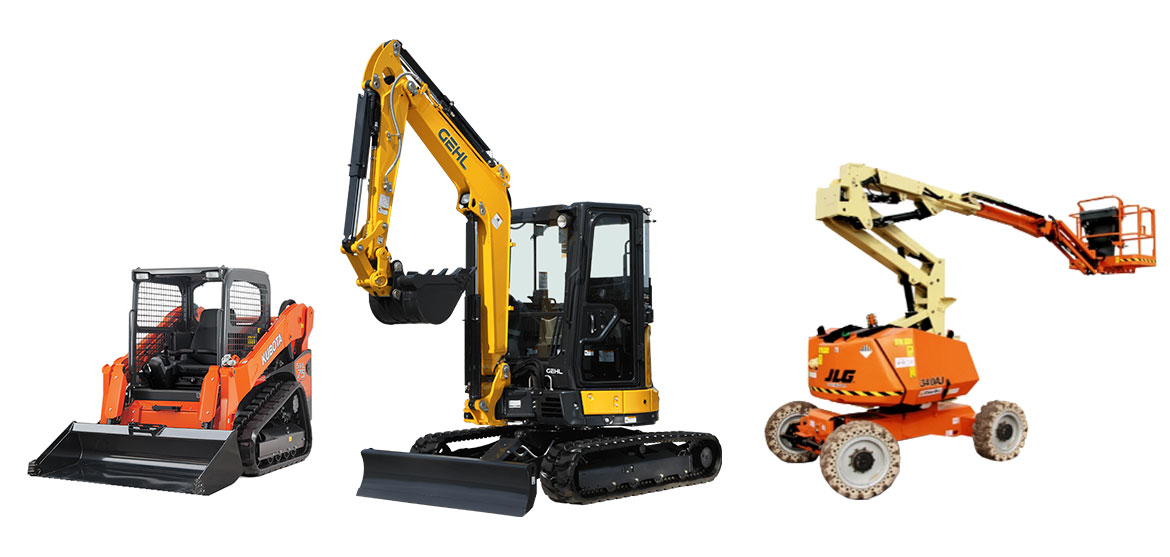Heavy Equipment Rental: Large Machinery for Any Type Of Construction Task
Heavy Equipment Rental: Large Machinery for Any Type Of Construction Task
Blog Article
Maximize Your Spending Plan by Understanding the Expenses Connected With Building And Construction Devices Leasings
Recognizing the complete range of costs related to building and construction tools leasings is critical for maximizing your budget plan. While the preliminary rental cost may appear uncomplicated, countless extra expenditures-- such as transport, gas additional charges, and maintenance-- can quickly collect, influencing your economic preparation. Being mindful of numerous fees and the details of rental agreements can aid stay clear of unexpected monetary burdens. What methods can be utilized to properly manage these expenses and make certain an extra efficient rental experience?
Introduction of Rental Costs
When considering building and construction equipment services, understanding the connected costs is extremely important for efficient budgeting and project preparation. Rental costs can vary substantially based upon numerous elements, consisting of devices type, duration of service, and place. The first rental fee frequently mirrors the equipment's market need and its associated operational capabilities, affecting the overall expenditure.
Along with the base rental rate, secondary costs might occur, such as transport fees, gas additional charges, and maintenance costs. It is important to account for these extra expenditures to accurately examine the total expense of renting out equipment. The rental duration can impact pricing; longer leasings might certify for reduced prices, while temporary rentals might incur greater day-to-day charges.

Breakdown of Rental Rates
An extensive understanding of rental rates is important for professionals and project supervisors aiming to maximize their budgets. Rental prices for building and construction tools usually contain numerous components, consisting of base prices, time-based costs, and usage fees.
Base rates are the core costs linked with the leasing of the devices, commonly established by the kind and size of the machinery. These rates can vary considerably, influenced by variables such as tools demand, availability, and regional market trends. Time-based charges, which might be daily, weekly, or monthly, serve to suit various task timelines and rental periods.
Furthermore, rental rates may include usage costs, which apply when tools is used beyond a defined threshold, guaranteeing that the rental business can account for damage. Seasonal demand variations can likewise impact rental prices, with peak building seasons typically regulating higher prices.
Additionally, understanding the rental firm's policies pertaining to maintenance and insurance policy can give further insight into the overall price structure. By evaluating these components, contractors can make educated decisions, ensuring the choice of rental equipment aligns with both job demands and budget restraints.
Added Charges to Think About
Understanding the complexities of extra costs is crucial for professionals to handle their total service expenses efficiently. Beyond the common rental prices, numerous supplementary fees can substantially influence the complete price of tools service. These costs often include delivery and pickup charges, which can vary based upon distance and logistics included in moving the equipment to and from the task site.
Additionally, some rental firms might Website enforce fuel surcharges if the equipment is returned with less fuel than when leased. It is also vital to recognize prospective cleaning costs, especially for specific equipment that requires comprehensive maintenance after usage.

Completely reviewing the rental arrangement and clearing up these additional costs upfront can aid professionals ensure and stay clear of unanticipated prices that spending plans stay undamaged throughout the job lifecycle.
Upkeep and Fixing Expenditures
Regular upkeep and repair work expenses are often ignored factors that can dramatically influence the total expense of building tools leasings. When renting out equipment, it is vital to consider not just the rental charges yet also the prospective prices related to maintaining the machinery in optimum operating condition.
Lots of rental firms include fundamental maintenance as component of the rental agreement; nevertheless, a lot more comprehensive fixings or unforeseen breakdowns can bring about added expenses. It's vital to examine the rental agreement carefully to understand what maintenance solutions are covered and what duties drop on the occupant.
Additionally, tools that is not well-kept can cause inadequacies on the job site, potentially causing delays and boosting job expenses. To minimize these risks, it is recommended to carry out routine evaluations and keep open communication with the rental provider regarding any issues that arise during usage.
Insurance and Liability Costs
Insurance policy and responsibility prices are essential parts that can dramatically influence the total cost of building equipment rentals (equipment rental company). These costs ensure that both the rental firm and the customer are safeguarded from potential economic losses developing from mishaps, damages, or theft during the rental duration

Furthermore, customers ought to understand any type of deductibles or exemptions in the insurance coverage, as these can affect prospective out-of-pocket expenditures. Comprehending the conditions of any kind of insurance coverage is important to avoid unexpected costs. Ultimately, budgeting for insurance coverage and responsibility expenses can assist make certain a smoother rental experience and safeguard versus financial threats associated with building tasks.
Conclusion
In conclusion, an extensive understanding of the costs associated with building devices leasings is important for image source reliable spending plan management. Inevitably, notified decision-making regarding tools rentals adds to the total success get redirected here of building ventures.
Rental costs can differ substantially based on a number of elements, consisting of tools type, period of service, and location (heavy equipment rental). The rental duration can impact rates; longer leasings may certify for affordable prices, while short-term services may sustain higher day-to-day charges
By carrying out comprehensive study and engaging with trusted rental companies, specialists can successfully navigate the intricacies of rental pricing, eventually optimizing their monetary sources.
Beyond the basic rental prices, various supplementary fees can significantly affect the complete cost of tools rental. Rental business usually offer responsibility insurance policy that covers injuries to 3rd parties or damages to building, while equipment damage insurance coverage can cover the price of repair work or substitute if the rented out equipment is damaged.
Report this page